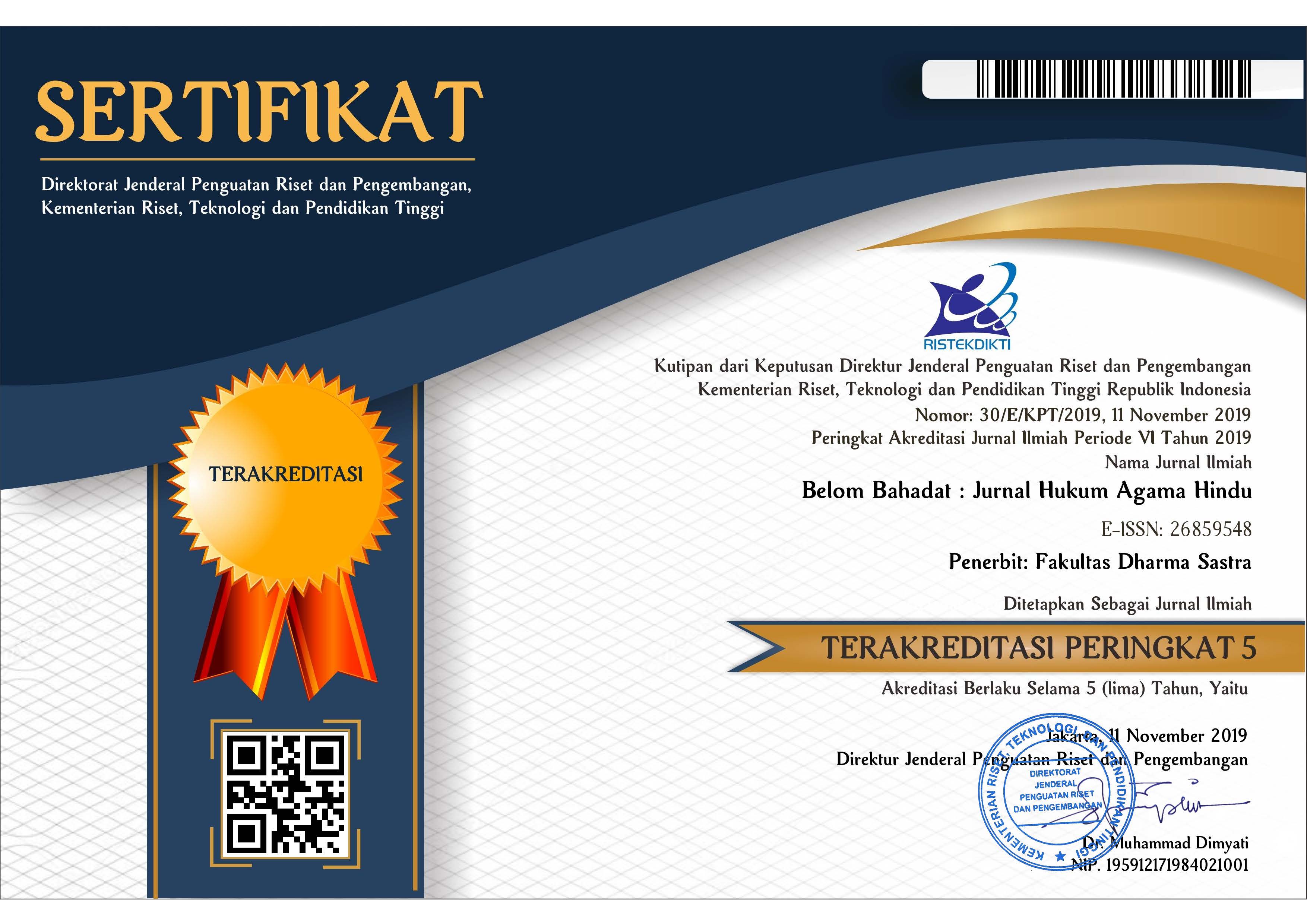Pemanfaatan Artificial Intelligence dalam Praktik Hukum: Peluang dan Tantangan Regulasi di Indonesia
Abstract
The development of Artificial Intelligence (AI) technology has brought significant transformation across various sectors, including the legal field. AI is increasingly utilized for automating legal research, analyzing contract documents, predicting case outcomes, and providing legal services through chatbots. While offering opportunities for increased efficiency and broader access to justice, the use of AI also presents serious challenges, particularly in terms of regulation and legal ethics. This study aims to examine the potential applications of AI in legal practice in Indonesia and to identify regulatory challenges arising from its use. The research employs a normative legal method with conceptual and comparative approaches, analyzing current regulations and practices in other jurisdictions such as the European Union and the United States. The findings indicate that Indonesia lacks a comprehensive legal framework to govern the use of AI in the legal sector, which poses risks related to accountability, algorithmic bias, and violations of privacy and professional ethics. Therefore, specific regulatory frameworks are urgently needed to ensure transparency, fairness, and accountability in the implementation of AI in legal practices.
References
Barocas, S., & Selbst, A. D. (2016). Big data's disparate impact. California Law Review, 104(3), 671–732. https://doi.org/10.15779/Z38J51C
Brynjolfsson, E., & McAfee, A. (2014). The second machine age: Work, progress, and prosperity in a time of brilliant technologies. W. W. Norton & Company.
Calo, R. (2017). Artificial intelligence policy: A primer and roadmap. UCLA Law Review, 51(2), 287-318.
Chien, S., & Lee, M. (2020). Legal technology and artificial intelligence: Implications for the legal profession. Journal of Legal Studies, 45(3), 227-245. https://doi.org/10.2139/ssrn.3353292
European Commission. (2021). Proposal for a regulation of the European Parliament and of the Council laying down harmonized rules on artificial intelligence (Artificial Intelligence Act). https://ec.europa.eu/info/sites/info/files/commission-proposal-regulation-artificial-intelligence-2021_en.pdf
Goodall, J. R., & Hodge, G. (2020). Artificial intelligence in the legal profession: Opportunities and challenges. Legal Technology Review, 23(4), 34-48. https://doi.org/10.2139/ssrn.3504165
Ghani, I., & Malik, M. I. (2020). The impact of artificial intelligence on the legal profession: A review. International Journal of Legal Information, 48(2), 121-138. https://doi.org/10.1017/jli.2020.19
Gless, S., & Roith, J. (2018). The regulation of artificial intelligence in legal services. Journal of Legal Technology, 12(1), 47-64. https://doi.org/10.2139/ssrn.3209380
Jang, Y. S., & Kim, J. (2020). AI and law: Ethical challenges and the future of regulation. International Journal of Law and Technology, 32(1), 42-56. https://doi.org/10.2139/ssrn.3340842
Li, S., & Zhang, R. (2019). Legal implications of artificial intelligence in China: A regulatory approach. Journal of Chinese Law, 35(4), 75-92. https://doi.org/10.2139/ssrn.3384760
McCarthy, J. (2007). What is artificial intelligence? Stanford University. https://ai.stanford.edu
National Institute of Standards and Technology (NIST). (2020). A draft of the NIST artificial intelligence (AI) risk management framework. https://www.nist.gov/news-events/2020/nist-draft-framework-ai-risk-management
Osborne, M. (2018). Machine learning and the legal profession: Exploring the implications. Law and Technology Review, 15(3), 88-102. https://doi.org/10.2139/ssrn.3027123
Rosas, R., & Calo, R. (2019). Regulating AI in the legal sector: Ethical and practical considerations. Journal of Law and Technology, 32(1), 88-115. https://doi.org/10.2139/ssrn.3196124
Surden, H. (2014). Machine learning and law. Washington Law Review, 89(2), 87-126. https://doi.org/10.2139/ssrn.2410530
United Nations Conference on Trade and Development (UNCTAD). (2020). Digital economy report 2019: Value creation and capture – Implications for developing countries. https://unctad.org/webflyer/digital-economy-report-2019
Undang-Undang Republik Indonesia Nomor 11 Tahun 2008 tentang Informasi dan Transaksi Elektronik. (2008). Lembaran Negara Republik Indonesia Tahun 2008 Nomor 58.
Undang-Undang Republik Indonesia Nomor 27 Tahun 2022 tentang Perlindungan Data Pribadi. (2022). Lembaran Negara Republik Indonesia Tahun 2022 Nomor 106.
West, D. M. (2018). The future of work: Robots, AI, and automation. Brookings Institution Press.








